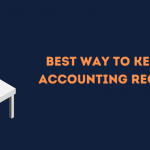What Should I Know About My Business’s Financials?
The prospect of starting your own business seems like a dream come accurate, provided you have an entrepreneurial spirit. But you should know that you are certainly not alone. At least 89% of America’s economy is made up of businesses with less than 20 employees. Thus several folks are grinding it out in the small businesses. There is so much to think ahead before you plan to open the doors to a new business.
As per the recent data, unfortunately, half of all new companies will not make it past a few years. One of the biggest reasons for the downfall of the majority of startups is problems featuring cash flows. You must prioritize the financial side of the equation to remain successful in the competitive market. Your chance at putting your great idea into action and running a growing and thriving small business if you are unable to manage your cash flows effectively. Above all, you cannot afford to ignore these little details.
Some questions you need to ask before starting a business are:
– What are my costs?
Ideally, costs for new businesses come in two categories include initial startup costs and ongoing overhead costs. You can tackle figuring out your startup costs when you decide on what is a must-have for your business to get off the ground and the real value of all the items essential.
You can include everything from computers, furniture to stock to get your business to a point
where you can make revenue. You also have to think about how much you the money you will
need to keep all the businesses moving forward. Overhead costs include everything from
internet service, salaries, cell phones, rent, etc. You can be as precise as possible with your
estimated costs are very important. All you need to do is get down into the weeds here.
Often you are trapped with cash issues in business if you fail to understand your costs at the first hand.
– What will the monthly cash flows look like?
Cash flow is all about the money coming into your business versus the money going out of your
business. When you assume the worst-case scenario, it can get tricky because most people think their business will thrive out of the gate. It is better to assume your business will grow gradually.
You will have nothing but good surprises when you really start hitting out of the park. As all
companies are different, but there are several resources available that help you in building
realistic expectations.
– How much capital do you need?
It is easy to figure out your capital requirement once you have figured out your projected cash
flows. Before you launch your business, you should have at least six months of operating money on hand. To be on the safe side again, you need to overestimate here. You don't want to be restricted financially from the beginning.
– Where can you get the funding?
Where you can get your startup mainly depends on several variables. There are several options
for funding, but some of the most typical options include savings and family. Based on your
business type, you can look for a government agency for assistance. You can also seek help from an angel or venture capital firm. Another source for funding business is small business loans, and it is perfect for entrepreneurs who don’t wish to shell out their savings or borrow from friends or family. You can settle on a combination of any of these options to bring the dream into reality.
Can you take care of your personal financial situation and business at the same time?
Even after your business is up and running, you need to be able to keep a handle on your own
finances. Often, entrepreneurs neglect their personal situation as they pour their soul and heart
in their business. Above all, you need to stay on top of saving for your retirement, paying your
bills, and putting some money aside for your future goals.
Once you finally open the door, you can dig deep into the financials of your new business venture, which will ease a lot of stress for you.


